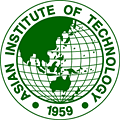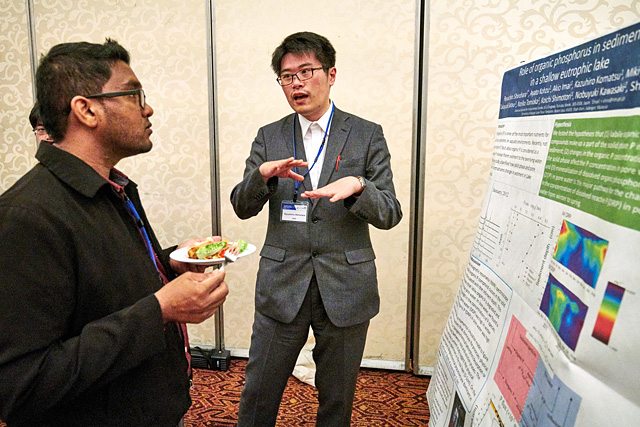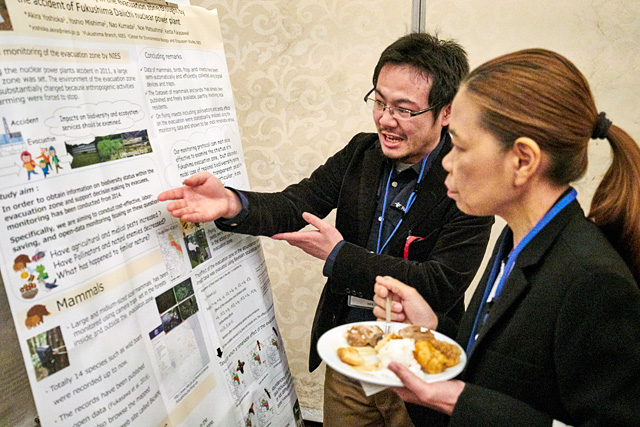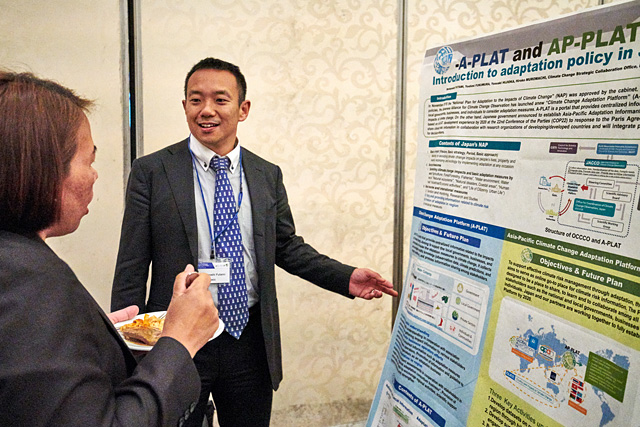3rd International Forum on Sustainable Future in Asia 3rd NIES International Forum
January 23-24, 2018
Kuala Lumpur, Malaysia
- Top
- About
- Program
- Speakers
- Presentations
- Posters
- Report
Thank you very much for your participation and contribution to the 3rd International Forum on Sustainable Future in Asia / 3rd NIES International Forum. The Forum concluded with great success with approximately 150 participants. We look forward to collaborating with you again for the upcoming International Forum.
| Date | January 23-24, 2018 |
|---|---|
| Venue | Seri Pacific Hotel Kuala Lumpur Kuala Lumpur, Malaysia |
| Registration | Participation is free. |
| Organizer | National Institute for Environmental Studies (NIES - Japan) |
| Co-organizers | Integrated Research System for Sustainability Science, The University of Tokyo (IR3S, UTokyo - Japan) Asian Institute of Technology (AIT - Thailand) |
Contact
National Institute for Environmental Studies (NIES)
16-2 Onogawa, Tsukuba, Ibaraki 305-8506 JAPAN
Background and Objectives
The National Institute for Environmental Studies (NIES) is undertaking a broad range of environmental research toward the realization of sustainable societies. In order to disseminate the outcomes of these research activities at NIES as well as to bridge the gaps between science and policy, NIES initiated the Forum on Sustainable Future in Asia in collaboration with the University of Tokyo and the Asian Institute of Technology firstly in 2016.
The Forum aims to create the foundation for a consortium of relevant institutions and governments in the region that will facilitate exchanges of knowledge gained through research and catalyze dialogue at the policy-research interface in the spheres of environmental management and sustainable development in Asia.
Structure of the Forum

1. Research Challenge for Climate Change Transformation - toward Science Based Action for Adaption and Mitigation -
Presentations for research actions by the global community, multi-national collaboration and national initiative will be extensively provided as presentations as well as the integrative discussion for possible contribution by the science community toward social transformation for climate change mitigation and adaptation will be intensively discussed.
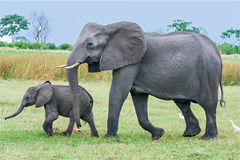
2. Biodiversity
The "2030 Agenda for Sustainable Development" is a set of 17 international development goals (the 17 Sustainable Development Goals (SDGs)) to be achieved by 2030 to transform our world (Link). One of the biodiversity related goals is Goal 15 (Life on Land), which is as follows: 'Sustainably manage forests, combat desertification, halt and reverse land degradation, halt biodiversity loss'(Link).
Biodiversity conservation in the tropical forests of Asia is an essential activity to achieve Goal 15, because this area is one of the global biodiversity hotspots, which is a geographic region possessing rich biodiversity but also threatened with the rapid loss of its biodiversity. NIES has conducted Asian tropical forest research based at the Pasoh forest reserve since 1990, with FRIM and UPM. Researches on biodiversity are an important part of these research activities.
In this session, we introduce the findings from the various kinds of biodiversity researches conducted in tropical forests in Malaysia to gain an idea on the integration of these findings for biodiversity conservation. In addition, we introduce the present situation of poaching and trafficking of protected species that is mentioned as one of the Goal 15 targets and a major contributor to biodiversity loss in this region.

3. Tropical Ecosystems in the Changing World
Terrestrial ecosystems in Southeast Asia occupy vast areas from tropical forests, plantations to wetlands. These ecosystems make a significant contribution to the regional and global budgets of carbon dioxide (CO2), methane (CH4), nitrous oxide (N2O). However, the regional budgets of CO2, CH4 and N2O in Southeast Asia and how these budgets will vary in the future remain highly uncertain with increasing population pressure, climate change, natural and human disturbances. Accurately quantifying CO2/CH4/N2O balances is critical for setting targets for their emission reductions and to identify and promote effective mitigation strategies. The presentations from various approaches and issues such as observation, experiment and modelling will bridge knowledge gaps in process understanding and across different spatial and temporal scales.
Day1 January 23, 2018
Opening Session9:00-11:30
-
Opening Remarks
-
Dr. Chiho Watanabe
President, NIES -
Dato' Dr Abd Latif Mohmod
Director General of Forest Research Institute Malaysia (FRIM), Malaysia by Dr. Ismail Harun Deputy Director General (DDG) of Forest Research Institute Malaysia (FRIM), Malaysia -
Prof. Kensuke Fukushi
Professor, Integrated Research System for Sustainability Science, The University of Tokyo -
Mr. Osamu Mizuno
Director, Regional Resource Centre for Asia and the Pacific, AIT
on behalf of Prof. Kazuo Yamamoto, Vice President for Administration, AIT
-
Dr. Chiho Watanabe
-
Keynote Speeches
-
Prof. Tan Sri Zakri Abdul Hamid,
Science Advisor to the Prime Minister of Malaysia, Malaysia -
Present status of Research Program for Climate Change in Japan
Prof. Akimasa Sumi,
Professor Emeritus, The University of Tokyo
-
Sustainable Forest Management in Malaysia
Dr. Ismail Harun,
Deputy Director General (DDG) of Forest Research Institute Malaysia (FRIM), Malaysia
-
Prof. Tan Sri Zakri Abdul Hamid,
-
Flash poster presentation11:30-12:00
-
Lunch / Poster session<span>12:00-13:00</span>
Session 113:30- 17:30
Research Challenge for Climate Change Transformation - toward Science Based Action for Adaption and Mitigation
-
Session coordinatorProf.Kensuke Fukushi(IR3S, UTokyo) and Prof. Tsuyoshi Fujita, NIES
-
Purpose of the SessionThe global society is faced with the 'transformation points' toward the de-carbonizing society as well as the resilient regions against the rapidly growing risk of climate change. Climate risks will certainly provide vulnerability particularly in growing economies of Asia. Adaptive and mitigative measures are considered with greater urgency as a solution toward smarter growth of economy and public welfare under the scientific forecasting of global warming impacts. While promoting appropriate actions, we also need to focus on an alternate mechanism on how we could strengthen suitable measures through networks and reduce vulnerability with cooperation. Since science alone cannot bring solutions, it is also important for scientists to work closely with their governments to promote appropriate policy actions.
Synergetic actions bridging adaptation and mitigation would be interactively discussed in the session. This session will approach these issues from both sides in discussing how to synergize adaptation and mitigation actions in Asia.
-
ChairProf.Kensuke Fukushi(IR3S, UTokyo) and Prof. Tsuyoshi Fujita, NIES
-
Presentations
-
Future Earth Challenges for Actions for Transformation
Dr. Fumiko Kasuga, Senior Fellow of NIES and Future Earth Global Hub Director- Japan -
Science to Policy actions (S2A) in Pursuing Low Carbon Development for Sustainability in Malaysian Cities
Prof. Ho Chin Siong, Universiti Teknologi Malaysia (UTM), Malaysia -
Monitoring Performance of REDD+ through the Use of Emission Risk Index
Prof. Rizaldi Boer, Bogor Agricultural University, Indonesia -
Africa and Asia: Exchange on Science-based observation for Monitoring, Mitigation and Adaptation
Dr. Oleg V. Shipin,Associate Professor, School of Environment, Resources and Development, AIT -
Integrative Monitoring and Modelling Research Challenge toward Social Transition under Climate Change
Dr. Tsuyoshi Fujita, Director, Center for Social and Environmental Systems Research, NIES -
Adaptation Initiative in Indonesia
Prof. Kensuke Fukushi,Professor, Integrated Research System for Sustainability Science, The University of Tokyo -
Study on the degradation of permafrost, vulnerabilities of steppe ecosystems and adaptation countermeasures in Mongolia
Dr. Wang Qinxue, Principal Researcher, Center for Regional Environmental Research, NIES -
Impacts of Climate Change on Human Health and Adaptation Strategies in Indonesia
Dr. Martiwi Diah Setiawati, Project Researcher, IR3S, Utokyo
-
Future Earth Challenges for Actions for Transformation
Day2 January 24, 2018
Session 28:30- 11:30
Biodiversity
-
Session coordinatorDr. Manabu Onuma, NIES
-
Purpose of the SessionThe "2030 Agenda for Sustainable Development" is a set of 17 international development goals (the 17 Sustainable Development Goals (SDGs)) to be achieved by 2030 to transform our world (https://sustainabledevelopment.un.org/post2015/transformingourworld). One of the biodiversity related goals is Goal 15 (Life on Land), which is as follows: 'Sustainably manage forests, combat desertification, halt and reverse land degradation, halt biodiversity loss'(http://www.un.org/sustainabledevelopment/biodiversity/).
Biodiversity conservation in the tropical forests of Asia is an essential activity to achieve Goal 15, because this area is one of the global biodiversity hotspots, which is a geographic region possessing rich biodiversity but also threatened with the rapid loss of its biodiversity. NIES has conducted Asian tropical forest research based at the Pasoh forest reserve since 1990, with FRIM and UPM. Researches on biodiversity are an important part of these research activities.
In this session, we introduce the findings from the various kinds of biodiversity researches conducted in tropical forests in Malaysia to gain an idea on the integration of these findings for biodiversity conservation. In addition, we introduce the present situation of poaching and trafficking of protected species that is mentioned as one of the Goal 15 targets and a major contributor to biodiversity loss in this region. -
ChairDr. Manabu Onuma, NIES and Mr. Manesh Lacoul, AIT
-
Presentations
-
Extensive camera trapping research to evaluate the biodiversity of Pasoh Forest Reserve
Dr. Manabu Onuma, Senior Researcher, Center for Environmental Biology and Ecosystem Studies, NIES -
Methods of Monitoring Populations of the Rajah Brooke's Birdwing, Trogonoptera brookiana (Lepidoptera, Papilionidae)
Ms. Phon Chooi Khim, Forest Research Institute Malaysia (FRIM), Malaysia
Phon C-K, Kirton LG, Norma-Rashid Y. (2017) Monitoring butterflies using counts of puddling males: A case study of the Rajah Brooke's Birdwing (Trogonoptera brookiana albescens). PLoS ONE 12(12): e0189450. https://doi.org/10.1371/journal.pone.0189450 -
Characterizing tropical forest canopy structure by UAV-SfM
Dr. Yayoi Takeuchi, Researcher, Center for Environmental Biology and Ecosystem Studies, NIES -
Habitat-related tree species distributions and diversity in a peninsular Malaysian rainforest
Dr. Yao Tze Leong, Forest Research Institute Malaysia (FRIM), Malaysia -
Improving Connectivity through Sustainable Landscape Management
Ms. GAN Pek Chuan, Programme Manager, Biodiversity and Sustainable Development, United Nations Development Programme -
Strengthening Wildlife Enforcement Monitoring and Establishing Asia-Africa Link
Mr. Manesh Lacoul; Deputy Director; WEMS Secretariat; AIT Solutions; Asian Institute of Technology. -
Thailand's effort towards addressing illicit trafficking of wildlife
Ms. Klairoong Poonpon, Director; Department of National Parks, Wildlife and Plant Conservation; Thailand.
-
Extensive camera trapping research to evaluate the biodiversity of Pasoh Forest Reserve
-
Flash poster presentation11:30-12:00
-
Lunch / Poster session12:00-13:00
Session 313:00 – 16:40
Tropical Ecosystems in the Changing World
-
Session coordinatorDr. Naishen Liang, NIES
-
Purpose of the SessionTerrestrial ecosystems in Southeast Asia occupy vast areas from tropical forests, plantations to wetlands. These ecosystems make a significant contribution to the regional and global budgets of carbon dioxide (CO2), methane (CH4), nitrous oxide (N2O). However, the regional budgets of CO2, CH4 and N2O in Southeast Asia and how these budgets will vary in the future remain highly uncertain with increasing population pressure, climate change, natural and human disturbances. Accurately quantifying CO2/CH4/N2O balances is critical for setting targets for their emission reductions and to identify and promote effective mitigation strategies. The presentations from various approaches and issues such as observation, experiment and modelling will bridge knowledge gaps in process understanding and across different spatial and temporal scales.
-
ChairDr. Nobuko Saigusa, NIES and Dr. Ismail Harun (FRIM)
-
Presentations
-
NIES leading research in Pasoh Forest Reserve (PFR)
Dr. Naishen Liang, Center for Global Environmental Research (CGER), NIES -
Optional Management Systems for Tropical Forests: Optimising Production and Protection Roles
Dr. Samsudin Musa, Forest Research Institute Malaysia (FRIM)< -
Remote sensing-based studies for forest productivity and biodiversity in the tropics
Prof. Mazlan Hashim, Universiti Teknologi Malaysia (UTM) -
Tropical forest soil acidification for understanding the effects of acidic precipitation in Malaysia
Prof. Ahmad Makmom Abdullah, Universiti Putra Malaysia (UPM) -
Evaluation of greenhouse gas fluxes of tropical peat lands in Borneo island
Dr. Ryuichi Hirata, CGER, NIES -
Ecosystem Carbon and Nitrogen Dynamics of Tropical Peatland
Dr. Kho Lip Khoon, Malaysian Palm Oil Board(MPOB) -
Sustainable peatland development in Sarawak
Dr. Lulie Melling, Sarawak Tropical Peat Research Institute (TROPI) -
REDD Plus Implementation and its Contribution to Malaysia's Nationally Determined Contribution
Dr. Elizabeth Philip, Forest Research Institute Malaysia (FRIM) -
Carbon Dioxide Measurements at the Danum Valley GAW Stationk
Mr. Mohan Kumar Sammathuria, Malaysian Meteorological Department -
Interdisciplinary Studies on Carbon Cycle of Rubber Ecosystem in Thailand
Prof. Poonpipope Kasemsap, Kasetsart University, Thailand
-
NIES leading research in Pasoh Forest Reserve (PFR)
Closing session16:40-17:30
-
Session Wrap-up
-
Closing RemarksMr. Norihiko Tanaka, General Manager, Planning Department, NIES
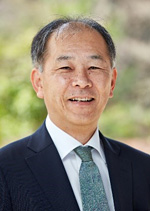
Dr. Chiho Watanabe
President, National Institute for Environmental Studies (NIES), Japan
Having background in toxicology and nutrition, he has conducted many experimental and field studies (mostly in Asia) on toxicant-nutrient-life style interactions and their health impacts, including such an interaction between mercury or arsenic and selenium in Asian populations. He has been also engaged in many inter-disciplinary projects/initiatives associated with the issue of sustainability and health; in his recent project, GRENEcoH, in which 'earth' observation, 'human' observation, and 'health' observation data have been combined to solve the challenging issues in the area of ecohealth. He has been serving as president of Society of Health and Human Ecology (JAPAN), vice-president of Society of Human Ecology (international) and was the chair of Human Ecology section in Ecological Society of America.
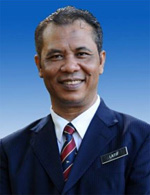
DATO' DR ABD LATIF MOHMOD
Director General of FRIM, Forest Research Institute Malaysia (FRIM)
Dato' Dr Abd. Latif Mohmod started his career at Forest Research Institute Malaysia (FRIM) as a Research Officer on 28 March 1985 upon graduating from the National University of Malaysia (UKM) in 1984. He obtained his Master of Science (MSc) in Forestry (1992) and completed his part-time PhD study in five semesters, specializing in Non-Wood Forest Products from the Agriculture University of Malaysia (UPM) in 1996. Dr Abd. Latif pioneered and managed Research and Development activities on properties and utilisation of non-timber forest products such as rattan, bamboo and palm. To date, he has published nearly 300 papers in various local and international journals and proceedings, and invented 50 machines (12 registered) for processing of rattan, bamboo, Pandanus and other palms. He held FRIM's Deputy Director-General of Operations post from 2005 to 2008. The period saw him led the establishment of the Conservation Management Plan for FRIM Campus and Land. Due to the plan, on 2 August 2007, FRIM had successfully secured its Land Title with a total area of 544.3 hectares and FRIM's campus was gazetted as A Natural Heritage Site in 2009. In May 2012, FRIM was gazette as National Heritage. Upon taking up the helm as FRIM's Director-General, he led FRIM to emerge as one of the world's recognized referral centre for tropical forestry research, development and innovation. FRIM has since chalked up an array of prestigious awards notably 'Mahathir Science Award 2009'; 'Nikkei Asia Prize Award 2009'; 'APECP Excellent Child Contributor Award 2010', 'National Book Award 2010, 2012, 2013 and 2016'; 'Malaysia Book of Records' as well as 'National Innovation Award, 2013' and 'National Intellectual Property Award 2014' for FRIM's chemical free lumber treatment technology. Dr Abd. Latif is the Vice Chairman of the Plant Resources of South East Asia (PROSEA) and past chairman of the Asia Pacific Association of Forestry Research Institutions (APAFRI). He is, on record, the first and only forestry scientist ever honoured with the Malaysian National Young Scientist Award (1993), National Inventor Award 1997, Eisenhower Fellow of USA (1999), Outstanding Young Malaysian (1999); the youngest recipient of International Union of Forest Research Organization (IUFRO)s' Scientific Achievement Award (1995) in the history of global forestry practice and the Rotary Research Gold Medal Award (2012) for his research contribution in the field of 'Science-Green Products'. He was selected as FRIM's Most Prolific Author of High Impact Factor Journal in 2010. He was also conferred with the Science and Technology (S&T) Achievement Award in November 2012 by the Malaysian Scientific Association for his outstanding contribution to the S&T development in Malaysia; and recognized as the Top Research Scientist Malaysia (TRSM) in 2013 by the Academy of Sciences Malaysia (ASM). He was then elected as Fellow of ASM in 2014; and selected as a recipient of the World Scientist Award 2016 for the World Environmental Sciences Grand Award category by Korea Invention News (KINEWS). More recently, Dr Abd. Latif received the BrandLaureate Most Eminent Brand Icon Leadership Award 2017 for the Environmental Conservation category. He is currently the Director-General of FRIM since May 2008.
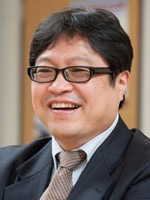
Prof. Kensuke Fukushi
Professor, Integrated Research System for Sustainably Science (IR3S) The University of Tokyo, Japan
Dr. Kensuke Fukushi is the Professor at the Integrated Research System for Sustainability Science, The University of Tokyo, Japan. He obtained his Bachelor of Engineering and Master of Engineering in Civil Engineering from Tohoku University, Japan in 1989 and 1991, respectively. He received his Ph.D. in Civil Engineering from the University of Utah, U.S.A. in 1996. He joined Tohoku University in 1996 as Research Associate and promoted to be Assistant Professor in 1997. He served as Assistant Professor at Asian Institute of Technology (AIT), Thailand in 1999 and became Associate Professor at AIT in 2001. At the same year, he joined the Environmental Science Center, The University of Tokyo as Associate Professor. He moved to the Integrated Research System for Sustainability Science (IR3S), The University of Tokyo in 2005. Prof. Fukushi's research interests include environmental engineering, risk assessment, climate change effect, water resource, biological technology, membrane technology. His research projects cover the integrated climate assessment - risks, uncertainties and society, establishment of research platform for developing models to predict future health risks posed by changes in climate, land use and population, development of international network for sustainability science and on health risk assessment in urban area.
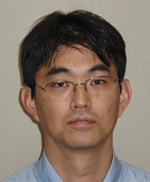
Mr. Osamu Mizuno
Director, Regional Resource Centre for Asia and the Pacific, Asian Institute of Technology
Mr. Osamu Mizuno has been serving as the Director of Regional Resource Centre for Asia and the Pacific at Asian Institute of Technology (AIT) since July 2015. Before joining AIT, Mr. Mizuno assumed various duties in the field of environment protection at some international organizations such as Deputy Coordinator of UN Secretary-General's Advisory Board on Water and Sanitation (UNSGAB) at the UN Secretariat in NY, and Senior Environmental Specialist at Global Environment Facility (GEF) in Washington DC. Mr. Mizuno also had been working at the Ministry of the Environment, Japan for more than 25 years. Mr. Mizuno holds Master of Public Administration from the John F. Kennedy School of Government, Harvard University and Master of Environmental Engineering from Graduate School of Environmental Engineering, Kyoto University.
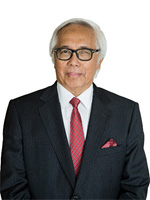
PROFESSOR ZAKRI ABDUL HAMID
Science Advisor to the Prime Minister of Malaysia.
Since 2010, Professor Zakri has been Science Advisor to the Prime Minister of Malaysia. His other concurrent roles include: Joint Chairman, Malaysian Industry-Government Group for High Technology (MIGHT); Chairman, Malaysian Bioeconomy Development Corp (Bioeconomy Corp); Chairman, National Professors Council; Chairman, Board of Advisors, UNU-International Institute on Global Health, Pro-Chancellor, Universiti Pendidikan Sultan Idris (UPSI) and Chairman of the Board of Directors, University of Malaya.
From 2001 to 2005, Professor Zakri co-chaired the UN's mega-study, "Millennium Ecosystem Assessment". He is the founding Chair of the Intergovernmental Platform on Biodiversity and Ecosystem Services (IPBES) and a member of the UN Secretary-General's Scientific Advisory Board. He sits on the Global Leadership Council of the Sustainable Development Solutions Network (SDSN). He has been appointed by the United Nations (UN) as the Co-Chairman of STI Advisory Board of the UN Economic and Social Commission for Asia and the Pacific (ESCAP).
Zakri's professional interests include crop science, biodiversity and science diplomacy. He has received numerous awards: Fulbright-Hays Fellowship (1981); Rotary Research Foundation Gold Medal Award (1999); ISSAAS Matsuda Award (2013); ASEAN Meritorious Service Award (2014); Zayed International Prize for the Environment (2014), the Academy of Science of South Africa Distinguished Visiting Scholar Award (2015) and Merdeka Award for the environment category (2015).
In Malaysia,he has been conferred rank of Senior Fellow by the Academy of Sciences Malaysia with the title of "Academician" (2015); Honorary Doctorate in Science, Universiti Malaysia Terengganu (2013), Honorary Doctorate in Biotechnology, Universiti Sultan Zainal Abidin (2013) Honorary Doctorate in Science, Universiti Putra Malaysia (2015); Honorary Doctorate in Science, University of Nottingham (2015). Also, conferred with a Datukship (1991); Dato' Sri (2012) and a 'Tan Sri' (2014).
In January 2017, the US-based "Biofuel Digest", an influential industry magazine has hailed him as one of the "Top 100 Influential Persons in the Advanced Bioeconomy 2017". In August, he was awarded the ASEAN Biodiversity Heroes, and recently, is the recipient of the 2017 Global Competitiveness Award, conferred by the Global Federation of Competitiveness Councils (GFCC).
Three species have been named after Zakri: a beetle (Paleosepharia zakrii), a cicada (Pomponia zakrii) and a pitcher plant (Nepenthes zakriana).
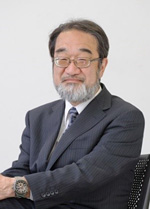
Prof. Dr. Akimasa Sumi
Professor Emeritus, The University of Tokyo
Dr. Akimasa Sumi got Ba. (1971) and Ma. (1973) in Physics in the University of Tokyo. He joined the Japan Meteorological Agency (JMA) in 1973. He stayed at University of Hawaii from 1979 to 1981. He got a Ph.D. from the University of Tokyo in 1985 and moved to the Department of Geophysics, the University of Tokyo as an associate professor. He was appointed to be a professor in CCSR (Center for Climate System Research), the University of Tokyo. He retired the University and was appointed to be a vice president of National Institute for Environmental Studies (NIES) at 2012. Since April 2013 until March 2017, he had been a president of NIES. His research field is numerical prediction, climate system dynamics and sustainability science.
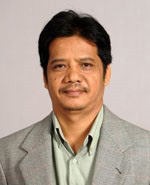
DR. ISMAIL BIN HARUN
Senior Research Officer at Forest Research Institute Malaysia (FRIM) Deputy Director General (Research & Development)
Dr. Ismail Harun got his Diploma Sc. Forestry in 1979, B.Sc. (Forestry) in 1988 M.Sc. (Forestry) in 1995 and Ph.D. (Forest Management) in 2006. For 6 years before becoming a scientist, has served as forest officer at Amanah Saham Pahang and Forestry Department of Forestry of Peninsular Malaysia. Tasks included supervision of harvesting activities, forest management and silviculture operations. He has, during the last 29 years worked as a scientist with the Forest Research Institute of Malaysia (FRIM). His scientific specialties embrace a broad range of topics related to forest management of natural tropical forests. Research includes mapping, remote sensing, inventory, mensuration, growth & yield, modeling, environmental studiess and forest certification. He has published more than 300 scientific papers and articles in international and local forestry journals, books, proceedings and in technical magazines. Has from time to time been commissioned to draw up research programs and plans for FRIM research program. He is also a member of expert panel to evaluate research proposals for the Ministry of Science and Innovation Malaysia & Ministry of Agriculture, Malaysia Research Grants. He has participated in many Malaysian delegations to international meetings and negotiations such as ASEAN, UNFCCC, UNFF, FAO & etc. He has organized series of international training programs at local and international levels such as for FORSPA-FAO, IUFRO, WORLD BANK, GTZ and has been responsible for a series of national training programs for local forest managers and Forestry Department officers. He also has been appointed as a consultant in many consultancy projects such as for Wetlands International, DANCED, GTZ, FAO, ITTO, MTC, MTCC, DID and several State Forestry Departments. As for forest certification, he has a wide experience in undertaking consultancy and auditing works for several agencies and FMUs and he is a qualified auditor and reviewer to MTCC & FSC forest certification schemes. In terms of Professional Society, he is a member of Commonwealth Forestry Association (CFA), Malaysia Scientific Association (MSA) and Malaysian Association of Research Scientist (MARS) and Malaysian Institute of Forester (IRIM) where currently he is a Vice President.

Dr. Fumiko Kasuga
Senior Fellow, NIES, Japan
As her task as Senior Fellow at the National Institute for Environmental Studies, Dr. Fumiko Kasuga is Future Earth Global Hub Director Japan. She is also a Visiting Professor at The University of Tokyo, Japan. She graduated and received Ph.D. from The University of Tokyo. She has been working as a government researcher in the field of public health, in particular microbiological food safety, and formerly, she was Director at the National Institute of Health Sciences. Internationally she has been working with WHO and FAO. In national academy, she was Vice-President of Science Council of Japan in charge of international activities. She is a member of International Council for Science (ICSU)'s Committee on Scientific Planning and Review. She has been involved in establishing globally-distributed Secretariat of Future Earth and is one of Global Hub Directors since May, 2015.
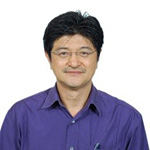
Prof. Dr HO Chin Siong
Faculty of Built Environment, University Technology of Malaysia, Johor Bahru
-
Professor Faculty Built Environment, Universiti Teknologi Malaysia.
-
Director UTM-Low Carbon Asia Centre (SATREPS program by JICA/ JST Japan),
-
Head- RCE Iskandar , Malaysia (RCE global network -United Nations University Institute for the Advanced Study of Sustainability (UNU-IAS)
-
Principal researcher/ Steering Committee on Massachusetts Institute Technology (MIT)-UTM Sustainable cities Program
-
Head of Sub cluster Low Carbon and Smart Cities, National Council of Professors (Built Environment and Engineering Cluster) Malaysia ( 2017-2019)
-
Project leader for Kuala Lumpur Low Carbon Society (LCS) Blueprint 2030, Low Carbon Pengerang 2030, Iskandar Malaysia LCS blueprint 2025, Putrajaya Green City 2025
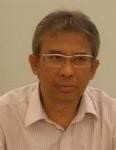
Prof. Rizaldi Boer
Centre for Climate Risk and Opportunity Management in Southeast Asia Pacific (CCROM - SEAP), Bogor Agricultural University, Indonesia
Prof. Rizaldi Boer is currently Executive Director of Centre for Climate Risk and Opportunity Management in Southeast Asia and Pacific of Bogor Agricultural University. He has been working on issues related to GHG mitigation strategies focusing on agriculture, forest and other land uses since 1998. Now, he is very active in conducting a number of studies related to policies toward low carbon development. Some of his recent works related to LCD are Low carbon development strategies of Bengkalis District-Riau Province that reduce pressure on peat-land ecosystems, Reducing agricultural expansion into forests: Analysis of implementation and financing gaps and supporting local governments in the development of local appropriate mitigation action (LAMA-Indonesia) in South Sumatra and Papua Province. He obtained his PhD degree in Agriculture from University of Sydney, Australia in 1994.
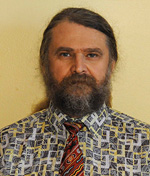
Prof. Dr. Oleg Shipin
Asian Institute of Technology, Thailand
Prof. Dr Oleg Shipin has 30 years of experience in Environmental Surveillance and Management, Water and Wastewater Engineering, Biotechnology (teaching, research, commercialisation and consultancy). He published extensively with more than 150 international R&D and educational publications and conducted more than 30 research and development sponsored projects with international/government agencies and private sector in Asia, Africa, Australia, Europe and USA.
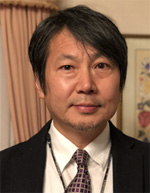
Tsuyoshi Fujita
Director, Center for Social and Environmental Systems Research, NIES
Prof. Tsuyoshi Fujita is a Director for Center for Social and Environmental Systems Research at National Institute for Environmental Studies (NIES), Japan. He is also an alliance professor of Nagoya University. He is a member of National Infrastructure Development Council of the Ministry of Construction and Transportation and holds chairman jobs in a number of national committees by the Ministry of Environment of Japan and a Committee member of National Eco-Model City Promotion Committee by the National Cabinet Office. His research fields are eco industrial development, low carbon city, urban environment simulation system, circular economy planning and spatial LCA, where he has published more than one hundred fifty journal papers. He has led thirteen national research projects in the fields to develop integrative urban technology and policy simulation systems. He got a doctoral degree from Tokyo University, after a Master of City Planning degree from the University of Pennsylvania after graduated from Tokyo University .
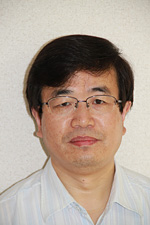
Dr. Qinxue WANG
Principal Researcher, Regional Environment Research Center, NIES, Japan
Dr. Qinxue WANG is the Principal Researcher in the Regional Environment Research Center, NIES of Japan. He is working on developing systems for the observation and evaluation of regional water and material cycles in East Asia. Dr. Wang once presided over the project "Establishment of Network for Early Detection of the Global Warming Impact" (2006-2010) and "Vulnerability Assessment and Adaptation Countermeasures for Permafrost Regions in Mongolia" (2012-2014) funded by Ministry of the Environment, Japan (MOEJ). He is now participating a policy-oriented project on "Development of Innovative Adaptation System and MRV Method for JCM in Mongolia" (2015-2019) funded by MOEJ, and "Study on multi-scale evaluation system for GHG variation and mitigation" (2016-2020), a core research project of NIES.
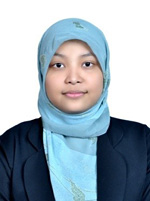
Dr. Martiwi Diah Setiawati
Project Researcher, Integrated Research System for Sustainably Science (IR3S) The University of Tokyo, Japan
Dr. Martiwi Diah Setiawati is the project researcher at the Integrated Research System for Sustainability Science, The University of Tokyo, Japan. She obtained her Bachelor degree in marine science and technology from Bogor Agricultural University, Indonesia in 2009. In 2012, she obtained Master of Science in Udayana University, Indonesia and Master of Engineering in Yamaguchi University, Japan under double degree program. She received her Doctoral Degree in Environmental Engineering from Yamaguchi University in 2015. Since 2016 until now she joined Integrated Research System for Sustainability Sciences (IR3S), The University of Tokyo as project researcher under Climate Change Adaptation Initiative Project in Indonesia. As the environmental scientist, she is interested in remote sensing and GIS application to multiple environmental conditions, such as; validation on satellite precipitation, physical flood vulnerability, estimation of open ocean tuna habitat, climate change impact assessment on health risk which also considered socio demographic change (i.e., land use, population etc.)
The lines will be deleted when printed.
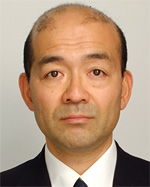
Dr. Manabu Onuma
Senior Researcher, Center for Environmental Biology and Ecosystem Studies, National Institute for Environmental Studies
Dr. Manabu Onuma is a senior researcher belonging to Center for Environmental Biology and Ecosystem at National Institute for Environmental Studies (NIES), Japan. He is in charge of managing a genetic resource bank for endangered species in Japan. Genetic resources collected from around 100 species were cryopreserved in NIES cryopreserving fascilities called the Time Capusule Building since 2002. He is trying to expand the genetic resource banking project to other country in Asian region, especially Southeast Asia. Because most of the part of Southeast Asia is categorized as biodiversity hotspots.
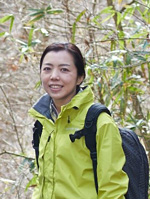
Dr. Yayoi Takeuchi
Researcher, Center for Environmental Biology and Ecosystem Studies, National Institute for Environmental Studies
Dr. Yayoi Takeuchi is a field ecologist, and has conducted studies on biodiversity and ecosystem services in tropical forests in Peninsular Malaysia and Borneo, where are biodiversity hotspots in the world. Especially she is interested in the mechanisms to maintain high species diversity in biological communities in tropical forests. The project in which she is currently engaged in Pasoh Forest Reserve in Malaysia aims to link high species diversity to complex canopy structure of tropical forests by using cutting-edge technologies such as drones and photogrammetry.
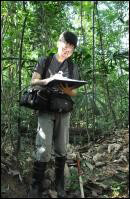
Mr. Yao Tze Leong
Forest Research Institute Malaysia
Mr Yao Tze Leong is a research officer at Forest Research Institute Malaysia (FRIM). He obtained his BSc. in Forestry Science (2006) and MSc. in Plant Systematics (2012), from Universiti Putra Malaysia and Universiti Malaya respectively. He joined FRIM in 2006. His field of interest is forest botany and ecology.
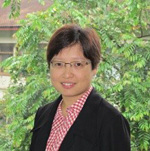
Ms. Phon Chooi Khim
Research Entomologist, Entomology Branch, Forest Biodiversity Division, Forest Research Institute Malaysia (FRIM)
Ms. Phon is completing a PhD in Ecology and Biodiversity at the University of Malaya and is working in FRIM as a Research Entomologist. Her PhD research is on the taxonomy, behaviour and ecology of the Rajah Brooke's Birdwing in Peninsular Malaysia. She is also involved in several projects on butterfly diversity and conservation, particularly the effect of wildlife corridors on butterfly dispersion.
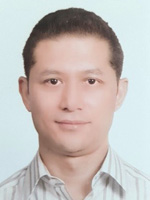
Mr. Manesh Lacoul
Deputy Director
Wildlife Enforcement Monitoring System (WEMS) Secretariat
AIT Solutions, Asian Institute of Technology
Mr. Manesh Lacoul is currently employed at the Asian Institute of Technology as the Deputy Director of the Wildlife Enforcement Monitoring System Secretariat under AIT Solutions. Prior to this, he held the position of Technical Adviser at the Regional Resource Centre for Asia and the Pacific in AIT, where he oversaw partnerships in the region and worked closely with the Regional Office for Asia and the Pacific of the United Nations Environment Programme in coordinating a programme designed to catalyse demand-driven grassroots innovations for sustainable Asia and the Pacific. He also worked as a member of the Regional Team to develop the joint UNDP-UNEP Poverty Environment Initiative in Asia. He has over fifteen years of experience in managing programme, operations, monitoring and evaluations and finances in both AIT and UNEP.
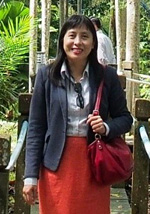
Ms. GAN Pek Chuan
Programme Manager, Biodiversity and Sustainable Development United Nations Development Programme
Gan Pek Chuan is the Programme Manager for Environment and Energy at the United Nations Development Programme (UNDP) Malaysia. She is a specialist with over 15 years of experience in the field of environmental sustainability, specializing in the design and delivery of a range of projects on biodiversity and multi-disciplinary issues in the nexus of green growth and natural resources. She has provided policy and technical advisory support to the Government of Malaysia and relevant partners in the formulation process of the 5-year Malaysia Plan and National Policy on Biological Diversity 2016 - 2025.
Prior to her work with UNDP Malaysia, she worked as a consultant in an environmental and geological consulting firm focusing on due diligence assessment and environmental impact assessment, and also served as an environmental auditor in a multi-national automotive manufacturer.
Pek Chuan holds a Master's Degree in Environmental Management and a B. Sc. (Honours) in Environment.
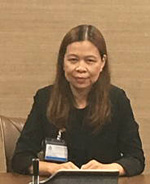
Klairoong Poonpon
Senior Forestry Technical Officer, Department of National Parks, Wildlife and Plant Conservation (DNP)
Klairoong Poonpon is the Director of General Administration Division of the Wildlife Conservation Bureau, DNP, Thailand. She has a very good experience in working on both national and international cooperation to combat wildlife crime, and wildlife law enforcement support. She involved in the establishment of the ASEAN Wildlife Enforcement Network (ASEAN-WEN) and used to be the Thai Government Liaison Officer for ASEAN-WEN Program Coordination Unit during 2007-2011. Her background is biologist, holds bachelor and master degree on Forestry. Her role now is more in policy for wildlife conservation and protection, and continuously working on international cooperation in combating wildlife crime. She supports the DNP's Anti-Wildlife Crime Taskforce in building strong connection with countries and specialised international organization such as INTERPOL to combat this crime.

Dr. Nobuko Saigusa
Deputy Director, Center for Global Environmental Research, NIES, Japan
Dr. Saigusa has a background in boundary-layer meteorology, terrestrial carbon cycle monitoring, and land-atmosphere interactions. She holds a Doctor of Science (1993) from Tohoku University, Japan. She was a JSPS's Research Fellowship for Young Scientists (1992-); a Research Associate, University of Tsukuba (1993-); a Research Scientist, National Institute for Resources and Environment (1996-); and a Senior Research Scientist, National Institute of Advanced Industrial Science and Technology (AIST) (2001-). She was involved in the Integrated Land Ecosystem-Atmosphere Processes Study (iLEAPS), a core project of IGBP, as a SSC member (2009-2014).
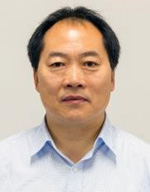
Dr. Naishen Lian
Senior Researcher, Global Carbon Cycle Research Section, Center for Global Environmental Research (CGER), NIES, Japan)
As native of Luoyang in Central China, he received his undergraduate education in forestry science and MS in ecophysiology (Beijing Forestry University), and PhD in ecophysiology (Niigata University, Japan). His postdoc training (Japan Science and Technology Corporation) was in tropical forest carbon cycle (1997-2000). He was a Research Fellow (National Institute for Environmental Studies) in boreal forest carbon cycle (2001-2005). His research is on terrestrial ecosystem carbon cycle and its interactive feedbacks to climate change and natural and human disturbances. With supports of continuous competitive funding from the Ministry of the Environment of Japan, his current research projects focus on response and feedback of the monsoon Asian soil organic carbon (SOC) emission to global warming.
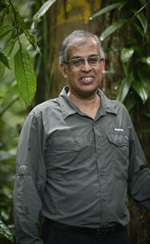
Dr. Samsudin Musa
Director
Forestry and Environment Division
Forest Research Institute Malaysia
Dr. Samsudin Musa is a Senior Researcher currently holding the post of Director of Forestry and Environment at the Forest Research Institute of Malaysia (FRIM). With more 30 years of working experience in tropical forest conservation and management as well as involvement in various regional and international collaborations, Dr. Samsudin holds a bachelors degree in Forestry from Universiti Putra Malaysia in 1984. His PhD is from the National University Malaysia (UKM) which he received in 2011. His thesis which involved the development of a new management prescription to better manage production forest received an excellent thesis award. He is also a Malaysia representative in Climate Change Talks and a Lead Auditor in Forest Management Certification.
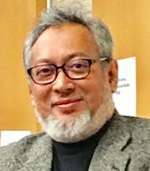
Mazlan Hashim
Senior Director, Research Institute for Sustainable Environment, Universiti Teknologi Malaysia
Professor Mazlan Hashim has spent over 30 years in the teaching, research and development, and project management of remote sensing and geospatial related applications including field radiometry. His interest is in the rigorous development and innovation of diverse satellite remote sensing and geopatial applications for natural resources and environmental management, including in tropical ecology and biodiversity. He has led several national and international collaborative studies in remote sensing and geospatial technology applications, with wide publications in more than 200 SCI (Science-citation indexed) articles, more than 300 conference proceedings, and several books. He received various awards at both national and international levels for his outstanding R&D&I in the field of geospatial sciences and its applications. Amongst others, he is recipient of the Eduard Dolezal award by International Society of Photogrammetry and Remote Sensing (ISPRS), and Top Research Scientists Malaysia by Malaysia Academy of Sciences. Currently, Prof Hashim is the Senior Director of Research Institute of Sustainable Environment, Universiti Teknologi Malaysia (UTM). He has 5 patents -granted, filed and disclosed, a founder and managing director of UTM-spinoff Company - Geospatial & Utility Services (GUS) Pte. Ltd formed since 2016.
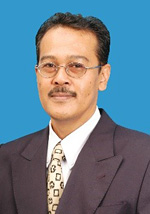
Dr. Ahmad Makmom Abdullah
Associate professor in Department of Environmental Sciences, Faculty of Environmental Studies, Universiti Putra Malaysia
Dr. Ahmad Makmom HJ Abdullah is affiliated to Department of Environmental Sciences, University Putra Malaysia, where Dr. Ahmad Makmom HJ Abdullah is currently working as Associate Professor. Dr. Ahmad Makmom HJ Abdullah has numerous publications within the specialty and published in reputed national and international peer-reviewed journals. Dr. Ahmad Makmom HJ Abdullah is actively associated with different national and international societies and academies. Dr. Ahmad Makmom HJ Abdullah gain recognition among the honourable subject experts with the contributions made. Dr. Ahmad Makmom HJ Abdullah is been appreciated by several reputed awards and funding support. Dr. Ahmad Makmom HJ Abdullah major research interest is in studies related to Ecophysiology, Air Quality and Climate Change.

Kho Lip Khoon
Group Leader, Tropical Peat Research Institute, Malaysian Palm Oil Board, Malaysia
Dr. Kho Lip Khoon is a Group Leader for Tropical Peat Research Institute at the Malaysian Palm Oil Board. He is also a visiting research associate of the Environmental Change Institute, University of Oxford. His research interests include ecosystems science, carbon cycling and land-atmospheric interactions of tropical ecosystems.
He is the principal investigator in peatland project in Sarawak to evaluate the overall global warming potential of oil palm plantations on peat by quantifying fluxes of greenhouse gases, carbon dynamics and carbon sequestration rates. He is also involved in other multi-consortium projects on tropical forest and oil palm on mineral soils relating to drought and carbon cycle.
The lines will be deleted when printed.
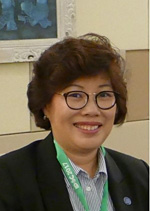
Dr. Lulie Melling
Director, Sarawak Tropical Peat Research Institute (TROPI)
Dr Lulie Melling is the director of the Sarawak Tropical Peat Research Institute (TROPI). Her research primarily concentrates on the management and sustainability of tropical peatland. She received her Bachelor of Science in Geography from the University of Malaya in 1990, followed by a Master degree in Agricultural Science with distinction from the University of Reading, United Kingdom in 1997. She obtained her PhD from Hokkaido University, Japan, in 2005. Since beginning her career as a researcher at the Department of Agriculture Sarawak, she has been appointed as peat soil expert for several national and international peat studies. She has led many major research projects involving the study of peat soil in collaboration with national and international experts, with numerous accredited publications in various international journals. One of these projects was a study on the development of tropical peatland for sustainable oil palm production in sarawak, worth RM15 million funded by the Malaysian Palm Oil Board (MPOB). In addition, she was vital in organising the 15th International Peat Congress (IPC) 2016 with the theme "Peatlands in Harmony- Agriculture, Industry and Nature" in Sarawak, Malaysia, in joint collaboration with the International Peat Society (IPS). She has been the recipient of many national awards for her scientific contributions awarded by the Sarawak Government.
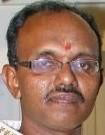
Mr. Mohan Kumar Sammathuria, MSc.
Senior Researcher, Atmospheric Sciences and Cloud Seeding Division, Malaysian Meteorological Department
Mr. Mohan Kumar Sammathuria has been working at the Malaysian Meteorological Department since 2001. He had completed a BSc in Mathematics and Physics at the University of Malaya in 1996. His previous experiences at the Department involve working with meteorological satellite receiving systems, climate and weather modelling and atmospheric measurements of gases and aerosols. He holds a MSc in the field of environmental monitoring from the University of Nottingham, Semenyih, Malaysia. The focus of his postgraduate studies has been in the field of remote sensing.
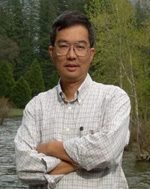
Assoc. Prof. Poonpipope Kasemsap
Horticulture Department, Faculty of Agriculture, Kasetsart University, Thailand
Poonpipope Kasemsap is the director of the Horticulture Innovation Lab Regional Center at Kasetsart University and a member of Feed the Future Innovation Lab for Collaborative Research on Horticulture's International Advisory Board. He has been the chair of the International Biology Olympiad since 2008. His research and teaching include the effects of climate change and air pollutants on the eco-physiology of horticultural crops and their productions. He previously served as the Vice President for International Relations, VP for Kamphaeng Saen Campus at Kasetsart University during 2012-2016, and also the Director of the International Studies Center at Kasetsart University in Bangkok.
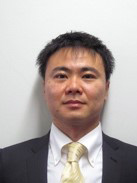
Dr. Ryuichi Hirata
EDUCATION
-
Doctor of Agriculture, 2005, Graduate School of Agriculture, Hokkaido University, Sapporo, Japan
PROFESSIONAL EXPERIENCE
-
Senior Researcher, 2015- present; Center for Global Environmental Research, NIES, Japan
-
Researcher, 2014-2015; Center for Global Environmental Research, NIES, Japan
-
Research Associate, 2012-2014; National Institute for Environmental Studies, Tsukuba, Japan
-
Postdoctoral Fellow, 2009-2011; Graduate School of Agriculture, Hokkaido University, Sapporo, Japan
-
Postdoctoral Fellow, 2008-2009; National Institute for Agro-Environmental Sciences, Tsukuba, Japan
-
NIES Postdoctoral Fellow, 2005-2007; Center for Global Environmental Research, NIES, Japan
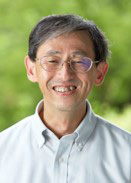
Norihiko Tanaka
General Manager, Planning Department , NIES, Japan
Mar 1988
Obtained Master Degree from Kyoto University, Japan
Apr 1988
Started working at Environment Agency, Japan (currently the Ministry of the Environment, Japan; MOE)
Apr 2012 - Jun 2013
Director, Office of Environmental Impact Assessment Review, Environmental Policy Bureau, MOE
Jul 2013 - Jun 2014
Director for Water Quality, Water Supply Division, Health Policy Bureau, Ministry of Health, Labour and Welfare, Japan
Jul 2014-Dec 2014
General Manager, Office of Interim Storage Preparation , Japan Environmental Safety Corporation (currently Japan Environmental Storage & Safety Corporation; JESCO)
Jan 2015 - Jun 2016
General Manager, Administration Department, JESCO
Jul 2016 - Jul 2017
Director of Environment and Energy, Council for Science, Technology and Innovation Policy, Cabinet Office, Government of Japan
Aug 2017-
General Manager, Planning Department, NIES, Japan
-
Prof. Akimasa Sumi,
Professor Emeritus, The University of Tokyo -
Dr. Fumiko Kasuga,
Senior Fellow of NIES and Future Earth Global Hub Director- Japan -
Prof. Ho Chin Siong,
Universiti Teknologi Malaysia (UTM), Malaysia -
Dr. Oleg V. Shipin,Associate
Professor, School of Environment, Resources and Development, AIT -
Dr. Martiwi Diah Setiawati,
Project Researcher, IR3S, Utokyo -
Dr. Manabu Onuma,
Senior Researcher, Center for Environmental Biology and Ecosystem Studies, NIES -
Dr. Yao Tze Leong,
Forest Research Institute Malaysia (FRIM), Malaysia -
Ms. GAN Pek Chuan,
Programme Manager, Biodiversity and Sustainable Development, United Nations Development Programme -
Mr. Manesh Lacoul;
Deputy Director; WEMS Secretariat; AIT Solutions; Asian Institute of Technology.
National Institute for Environmental Studies
-
Shohei Nomura, Specialist, Center for Global Environmental Research
Yukio Terao, Senior Researcher, Center for Global Environmental Research -
The influence of step wise tree thinning on understory carbon fluxes in a larch forest on the northern foot of Mount FujiMunemasa Teramoto, Research fellow, Center for Global Environmental Research
-
Controls of Soil CO2 Efflux of a Lowland Tropical Forest Ecosystem in Peninsular MalaysiaZhao Xin, JSPS postdoctoral fellow, Center for Global Environmental Research
-
Hidenori Matsukami, Researcher, Center for Material Cycles and Waste Management Research
-
Making most robust decisions in ecological risk management of zinc in Japanese surface waters under severe uncertaintyHiroyuki Yokomizo, Senior Researcher, Center for Health and Environmental Risk Research
-
Ryuichiro Shinohara, Senior Researcher, Center for Regional Environmental Research
-
Seiya Maki, Research Associate, Center for Social and Environmental Systems Research
-
Determination of atmospheric mercury isotopic compositions: technical development and applicationsAkane Yamakawa, Researcher, Center for Environmental Measurement and Analysis
-
Akira Yoshioka, Researcher, Fukushima Branch
-
Masayoshi Futami, Research fellow, Climate Change Strategic Collaboration Office
Integrated Research System for Sustainability Science, The University of Tokyo
-
Hidekiyu Mohri, Researcher, The University of Tokyo Institute for Advanced Study (UTIAS), Integrated Research System for Sustainability Sciences (IR3S), Science and Communication Officer, Future Earth
Asian Institute of Technology
-
Using Spaced Based Technology for Climate Change Mitigation & Disaster Risk ManagementAyeisha Sheldon, 1GeoInformatic Center, Asian Institute of Technology
Universiti Teknologi Malaysia
-
Loon Wai Chau, UTM-Low Carbon Asia Research Centre, Department of Urban and Regional Planning, Faculty of Built Environment
-
Gabriel Hoh Teck Ling, UTM-Low Carbon Asia Research Centre, Department of Urban and Regional Planning Faculty of Built Environment
-
Mohamad Zulikhram Z., UTM-Low Carbon Asia Research Centre, Faculty of Built Environment
-
Rohayu Abdullah, UTM-Low Carbon Asia Research Centre (UTM-LCARC), Department of Urban and Regional Planning, Faculty of Built Environment
-
Muhammad Akmal Hakim H., UTM-Low Carbon Asia Research Centre, Department of Urban and Regional Planning, Faculty of Built Environment
Sarawak Forestry Corporation
-
Building Stakeholder Capacity in Forest Management Certification through RIMBA Conservation Internship Program (CIP)Robi Joseph Nickson, Research Manager, Strategic Planning and Special Project
Sarawak Tropical Peat Research Institute
-
Effect of Soil Compaction and Temperature on Soil CO2 Emission from Tropical PeatlandNur Azima Busman, Chemistry Division
Malaysian Palm Oil Board
-
Soil CO2 emissions rate and Oil Palm Yield at Different Types of Peat Soil in Sarawak, MalaysiaHasimah Mos, Biology Research Division
-
January 23 - 24, 2018, at Seri Pacific Hotel, Malaysia
-
January 26 - 28, 2017, at Udayana University, Indonesia
-
January 27 - 28, 2016, at Asian Institute of Technology, Thailand


















